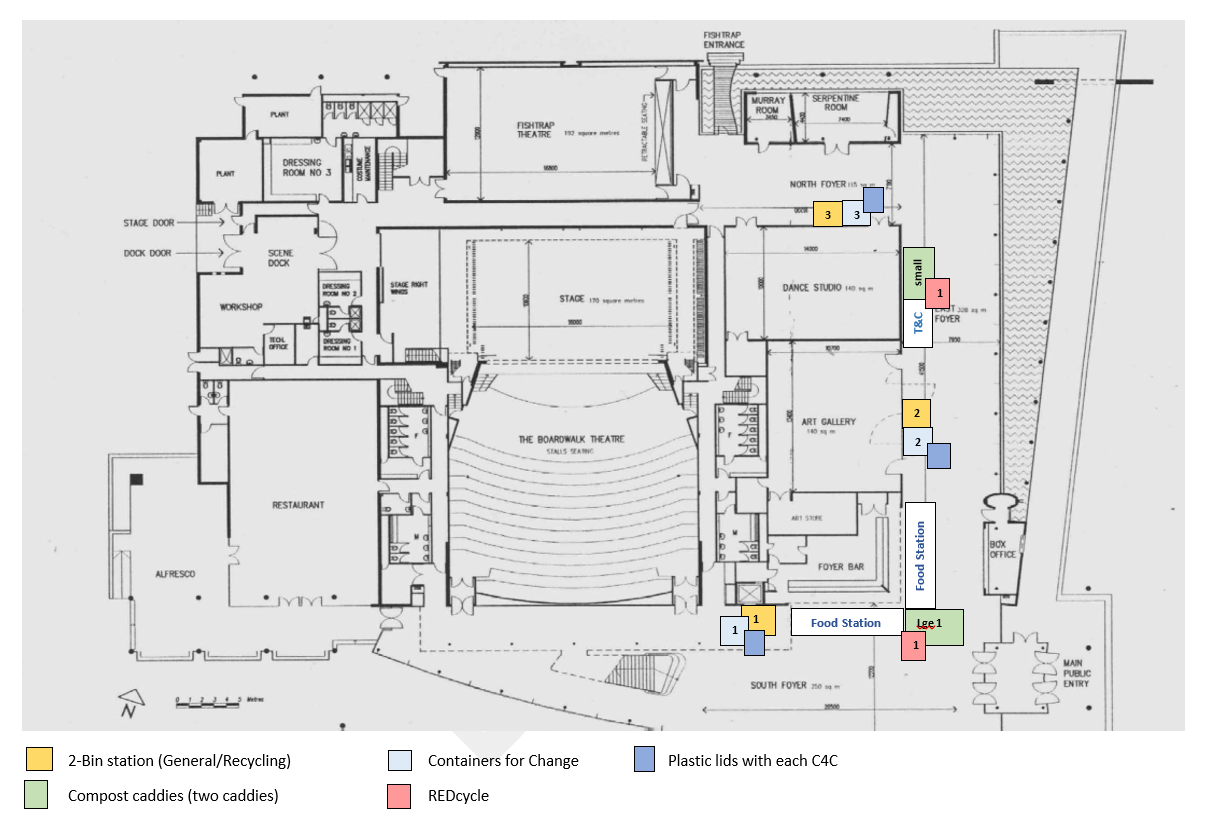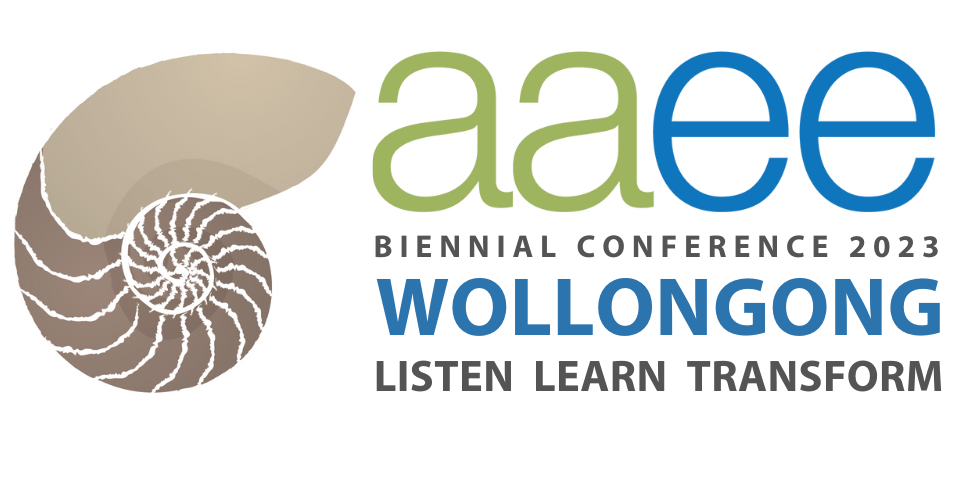Waste Management
AAEEWA waste management plan: AAEE 2021 Biennial National Conference
The Western Australian chapter of AAEE (AAEEWA) will be guided by the Waste Hierarchy as it aims to model the delivery of a low-waste conference as it hosts the AAEE 2021 Biennial Conference at the Mandurah Performing Arts Centre (ManPAC).
AAEEWA will:
- Avoid/minimise the generation of waste at the conference
- Recover organic waste for composting
- Recover recyclable waste (plastics, paper, cardboard, glass and metals) based on ManPAC requirements, and also include C4C and REDcycle; and
- Collect and dispose of general waste that does not fall within the categories above.

Source: Waste Avoidance and Resource Recovery Strategy 2030
AAEEWA’s approach to waste management
AAEEWA focuses on a systems approach to waste management when organising the programs and events it presents. The Conference waste management will be based on the following embedded practices:
- modelling the desired behaviours around waste minimisation and recycling
- developing initiatives to educate and encourage waste minimisation for participants and attendees
- providing separation options to maximise recovery of recyclables and compostables
- auditing bins in order to evaluate initiatives and demonstrate possibilities for how others can achieve goals in waste minimisation
- the use of reusable alternatives over compostable options to reduce single-use waste (e.g. washable plates/cutlery instead of bamboo plates/cutlery);
- auditing conference waste and reflecting on the evaluation of initiatives with the aim of continuous improvement in waste education and management.
Waste initiatives for Conference catering
Where possible AAEEWA will liaise with the caterer to:
- Reduce the overall footprint of the conference by offering vegan and vegetarian food
- Source food that is the most sustainably produced product available
- Where possible, source food that is locally produced
- Consider environmental issues such as issues associated with palm oil
- AVOID the use of single-use plastics and packaging
- Delegates will be offered reusable servery and cutlery (use of GO2CUP)
- Aim for food to be supplied on re-usable servery that can be returned to caterers
- No cling wrap coverings*
- No polystyrene containers*
- Avoid other single-use packaging where possible
- Avoid food wastage where possible
- Avoid over-ordering
- We are working with the local community kitchen and any excess food that is untouched will be taken to the community kitchen
Waste education and management initiatives
In hosting the Conference, AAEEWA has liaised with ManPAC to understand existing system and collaborate on the waste initiatives to minimise the amount of waste generated at the conference and recover recyclable waste materials to reduce what goes to landfill.
AAEEWA will strategically locate a range of different bins with appropriate signage that will be managed by AAEEWA volunteers.
Waste management initiatives for the conference include the following:
- As the conference catering will be vegetarian and vegan, arrangements have been made for the compostable waste to be taken to the local community garden for composting
- REDcycle waste (soft plastics)
- Eligible Containers for Change items
- Recyclable waste (according to ManPAC/Cleanaway requirements)
- General waste (according to ManPAC/Cleanaway requirements)
Bin Locations (Subject to Change)

Evaluation of the waste management and education initiatives
Waste education is a key component of our waste management plan to make our practices visible through modelling desired behaviours, signage, promotion, and conversations.
-
- All conference bins* will be audited, contamination rates assessed, and weighed as part of an evaluation of waste education initiatives to encourage positive waste management behaviours
- Provide data for each bin and overall conference waste generation
*The waste catchment will be limited to bin stations that have conference signage
Previous experience in running low-waste events
The Conference waste management plan is based on AAEEWAs experience in hosting a range of events including the Annual Science Expo during Science Week near the weir at the Canning River Eco Education Centre (CREEC) for 11 years. Key initiatives during these Expos included:
- Encouraging people to be mindful of single-use plastics and cups and bring their own picnic lunch in reusable containers and drink bottles.
- AAEEWA collaborated with the local café in offering discounts for people buying coffees with reusable cups and providing advice on low-waste and environmentally sustainable options for food packaging such as compostable packaging rather than single-use plastics.
- Display stalls were also encouraged to be mindful of free giveaway materials available. There was a no balloon policy.
- Bin stations for recyclable and general waste were strategically located throughout the site, with clear signage for what was accepted in each bin based on local council waste management rules.
- These were audited at the end of the event to evaluate the effectiveness of the range of waste initiatives.
Overall, evaluation of the initiatives indicated they were successful with the amount of waste generated per person (based on the estimated number of attendees) at each annual Expo event declined over time. It is evident from the graph below that waste generated per person at the 2019 Science Expo was an impressively low 0.006 kg. We aim to achieve similar, low levels of waste generated per person through the implementation of this year’s AAEE 2021 Biennial National Conference.
Previous experience in running low-waste events
The Conference waste management plan is based on AAEEWAs experience in hosting a range of events including the Annual Science Expo during Science Week near the weir at the Canning River Eco Education Centre (CREEC) for 11 years. Key initiatives during these Expos included:
- Encouraging people to be mindful of single-use plastics and cups and bring their own picnic lunch in reusable containers and drink bottles.
- AAEEWA collaborated with the local café in offering discounts for people buying coffees with reusable cups and providing advice on low-waste and environmentally sustainable options for food packaging such as compostable packaging rather than single-use plastics.
- Display stalls were also encouraged to be mindful of free giveaway materials available. There was a no balloon policy.
- Bin stations for recyclable and general waste were strategically located throughout the site, with clear signage for what was accepted in each bin based on local council waste management rules.
- These were audited at the end of the event to evaluate the effectiveness of the range of waste initiatives.
Overall, evaluation of the initiatives indicated they were successful with the amount of waste generated per person (based on the estimated number of attendees) at each annual Expo event declined over time. It is evident from the graph below that waste generated per person at the 2019 Science Expo was an impressively low 0.006 kg. We aim to achieve similar, low levels of waste generated per person through the implementation of this year’s AAEE 2021 Biennial National Conference.

Register Now!
All persons intending to attend the Conference must complete a Registration Form.
You can also register for the Research Symposium via the Conference Registration link.
